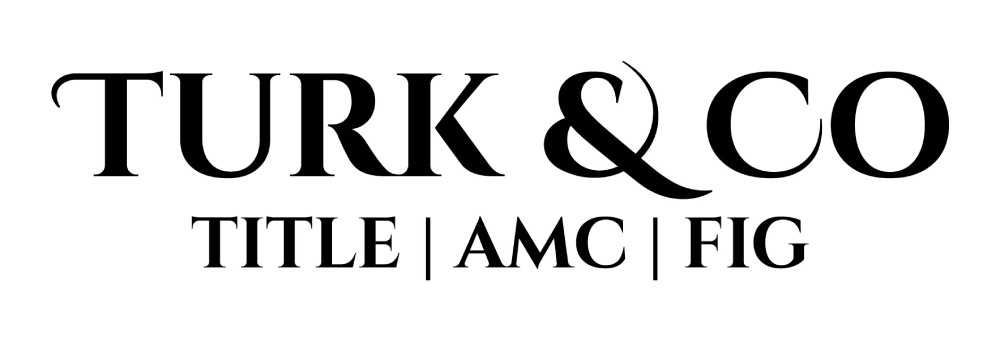Dear Industry Colleagues,
The title industry is changing fast. Many of you have felt the turbulent impact of new methodologies, consolidations, and expectations. Just when you think you’ve got it all figured out, things shift. Today’s Buyers are increasingly sophisticated. They often come with a whole different perspective than what is conventional. They’ve taken the time to figure out what the newest is in the title industry. If you want to stay ahead, it’s crucial to understand what buyers are looking for in today’s market, especially as larger, more dominant agencies start to take the lead. Staying on top in a competitive environment is critical.
At Turk & Co, we’ve had the privilege of working with both title company buyers and sellers, giving us a unique perspective that can help any title company—whether you’re thinking about selling or expanding through acquisition.
This blog is the third of our series on what today’s buyers look for in a title agency. Previously, we covered Business Mix and Business Process Outsourcing, highlighting the key factors that buyers consider during evaluations. Now, we’re exploring an even more significant aspect of buying and selling from a M&A perspective: Business of People. The human element is the greatest determinant of success for your business. I hope you find this series helpful and insightful.
–Howard Turk
Leadership and People: The Core of Title Agencies
Title is a people-centric business. Smart buyers know this. Smart Buyers—the ones building relationships, earning well, contributing ethically to all parties involved—understand that while innovative technology is great, people are the ones driving the bus. Title People Matter.
Buyers worry about a lot of things, and when it comes to people, their typical focus is on two main areas:
- Who will run the business post-acquisition—management and operations. Shrewd buyers will carefully assess employee turnover, looking for any signs of internal issues, and gauge the mindset of the team. Ideally, they want to see a growth-oriented mindset already in place.
- Whether the values and vision of the target align with theirs. Cultural alignment is key for a successful acquisition.
Leaders look for leadership. When looking at potential acquisitions, the first thing buyers focus on is who is leading and how are they doing it. The leaders of sales, operations, and finance are critical because they drive the growth, efficiency, and profitability of the business. However, strategic buyers—those already in a related business—look at this issue differently since they’re often bringing in their own leadership. For these buyers, the current leadership team is expected to stick around just long enough to ensure a smooth transition, not necessarily to lead the company in the long term. Financial Buyers almost always want the business’ leaders to stay on longer term.
Sell Before You Want to Sell
Buyers want to know that the magic-makers—the people driving success—will still be around after the business is sold, at least for a while. No one buys a title company just to keep things the same; they want growth. The business needs to be poised to grow, and a starting point is to build on what is there rather than focus on getting a new team in place and hoping they will work well together.
A strong team that’s ready to transition and help drive that growth is key. That’s why incentivizing leaders to stay on through the transition (via earn-outs, employment contracts, profit sharing, etc.) is such a common and effective strategy.
Oftentimes, the key members of management are also owners. They’ve been deeply involved for years and might be ready to step back soon. That’s why we always advise founders to sell before they feel it’s time. Selling early allows you to gradually reduce your involvement while still keeping an eye on critical customer relationships that are essential for volume. Buyers value continuity and a smooth transition to protect growth prospects.
By selling earlier, you also mitigate risks and reassure buyers. It’s a move that typically results in a higher Enterprise Value. Talk about a ‘win-win’!
Tip: Maximize value by selling before you want to. Having an experienced, stable management team in place for the transition minimizes risk and promotes continuity, which buyers typically value highly, boosting the chances of a smooth sale. Ensure key leaders are willing to stay on post-acquisition before beginning the sales process.
Buyers Love a Growth-Oriented Mindset
Buyers value a company with a true growth mindset among its staff. Saying you have a growth mindset and demonstrating it are two very different things. Buyers are not judging you based on what you say you’re going to do, but on what you’ve already accomplished.
One way to show a broadly-based operational growth mindset is to be open to new and innovative methodologies that contribute to growth. A good example of this is implementing a ‘Culture of Sales’ where everyone in the company is involved in the sales effort. When everyone—from sales reps to customer service technicians—is focused on growth and rewarded for it, the entire business moves forward. Again, success is determined by the business of people.
An embedded Culture of Sales can set a great company apart from an ordinary one. Imagine an environment where everyone has a business growth mindset, backed by financial incentives to help expand the business. Done right, this simple yet leading-edge tactic can unlock incredible growth potential.
Buyers love this approach because it diversifies the sources of business, making the company more resilient and better positioned for long-term growth and sustainability.
Bottom line: Buyers love a growth-oriented approach.
Tip: For more on building a Culture of Sales, check out our detailed blog on the topic here: The Independent Title Agent Survival Guide – Sales Rep Edition
Skeletons in the Closet?
It’s almost unheard of for the leaders of operations to change immediately following a merger or acquisition. Status quo maintenance reassures clients and is what buyers like to see. That doesn’t mean things won’t ever change; it just usually happens down the road.
Beyond leadership, buyers also look closely at the employee base. High turnover, especially if it’s not linked to external economic factors, can be a red flag. A consistent employee base reflects the culture of the business and the predictability of future volumes, especially if it involves revenue-producing employees.
Culture is everything in title agencies, and it’s directly tied to employee satisfaction. Buyers love to see a happy team because it usually means better customer retention. But if there are signs of dissatisfaction, you can bet buyers will dig deeper. And they should. High turnover rates are tricky to measure, but they often point to bigger problems.
Tip: Exit interviews and understanding why employees leave voluntarily can help dispel any concerns during due diligence. Also, make sure your online presence is clean. Buyers are going to look at social media and sites like Glassdoor, so be prepared to explain any negative reviews.
Your Financial Leader Can Make or Break Your Deal
A top-notch finance team is a must during M&A. Buyers don’t want disruptions, and they value a finance team that knows the business inside and out. The smoother the reporting and financial analysis, the better the outcome. Strategic buyers often have their own financial leaders, but they appreciate minimal interference in the seller’s finance operations post-acquisition.
Tip: Be prepared for a deep dive into your financials during due diligence, especially if you’re dealing with a mid-sized or larger transaction. A third-party Quality of Earnings (QofE) report will scrutinize every detail of your financial team’s work, so make sure everything is in order before you consider selling.
Prioritize the Happiness of Your Team
I’ll never forget asking a seller once to describe the title business he had spent his life building. His eyes lit up, not because of profits, but because of how the company had changed the lives of his employees—their kids going to college, buying homes, and supporting families. Sure, he wanted the business to produce profits (businesses are obliged to be opportunistic that way), but what inspired him was the ripple effect the business produced in terms of the impact it had on the lives of its employees and his community. We ended up selling his business to a buyer who shared the same mindset. The seller knew that his legacy would continue, and the buyer knew he was getting a team he would enjoy working with.
Both buyers and sellers love cultural alignment. In fact, it can even trump the highest offer. Sellers are often willing to accept a lower offer if they feel the buyer aligns with their values and will preserve their company’s culture.
Tip: Having a strong company culture is a major selling point. Highlight it early in the process to make your agency stand out. A positive work environment not only attracts top talent but also reduces turnover—a factor that makes your business more appealing to potential buyers.
You have more and less effective ways to handle almost everything. At Turk & Co, we know. We’ve seen it. We’ve experienced what works: Business Mix, Business Process Outsourcing, and Business of People (covered in this article). If you’re thinking of selling, merging, or just exploring your options, having the right strategy and team on your side can make all the difference.
Contact us at , or call us at 310 294 9199. We can help.






















 For More information
For More information